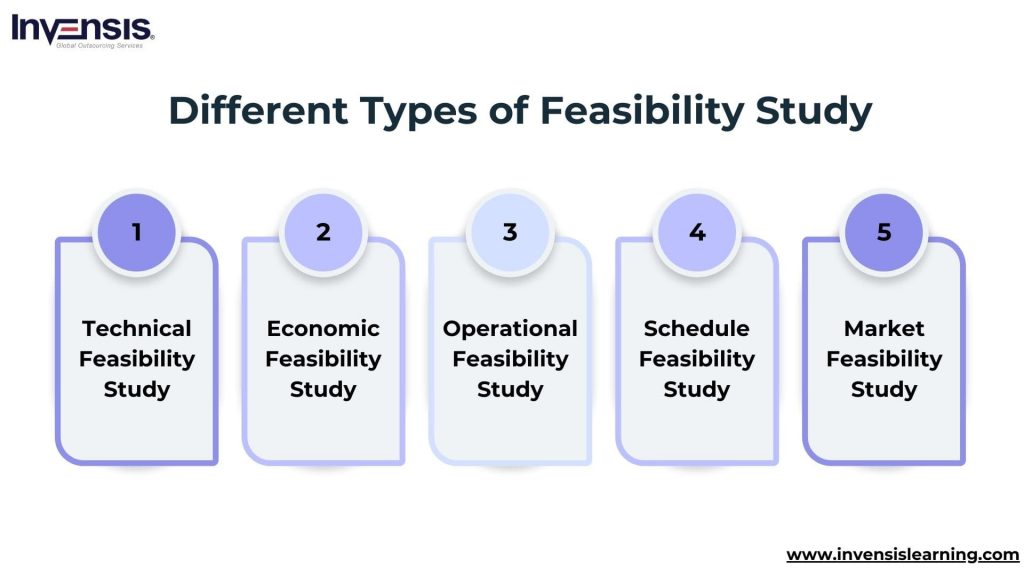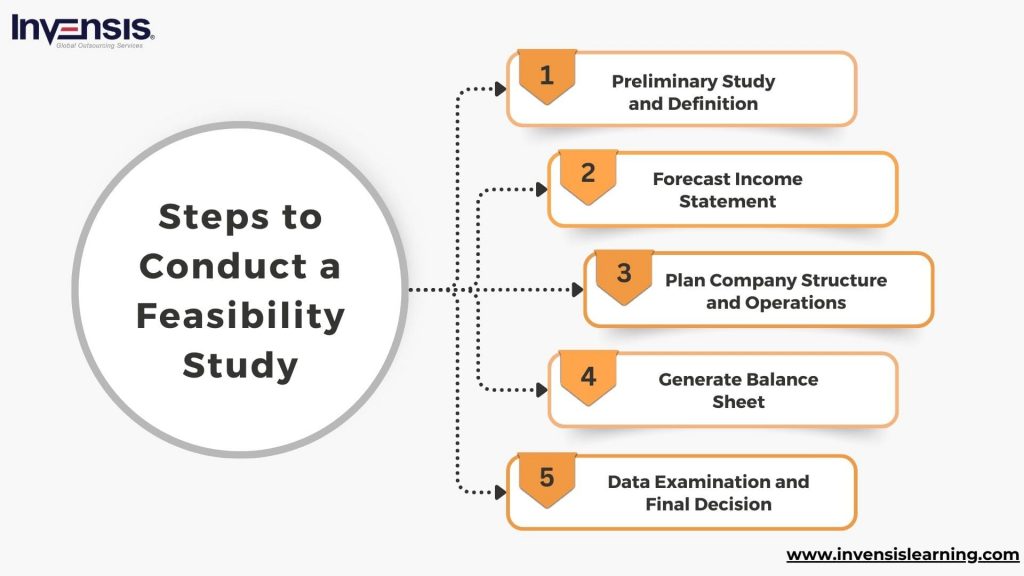
Feasibility studies play a crucial role in the early stages of project development, offering invaluable insights into a project’s viability and potential challenges. In this blog, we’ll explore the fundamentals of feasibility study, types, components, Its Importance in project management, the process of conducting a feasibility study with real-world example, and the the difference between feasibility studies and business plans.
Whether you’re new to project management or seeking to deepen your understanding, this guide provides a solid foundation on this critical aspect of project planning.
Table of Contents
- What is feasibility study?
- Why Feasibility Study is Important During a Project?
- What are the Different Types of Feasibility Study?
- What is Included in a Feasibility Study Report?
- How to Conduct a Feasibility Study?
- An Example of Feasibility Study
- Feasibility Study Vs. Business Plan
- Conclusion
What is Feasibility Study?
A feasibility study is a crucial assessment tool in project management. It offers a systematic evaluation of a proposed project’s viability. This comprehensive analysis encompasses various dimensions, including technical, economic, legal, operational, and scheduling considerations.
By analyzing these factors, the feasibility study aims to unearth potential obstacles, assess risks, and identify opportunities associated with the project.
Through this process, stakeholders gain valuable insights to make informed decisions regarding the project’s feasibility and advisability.
Ultimately, the feasibility study culminates in a detailed report outlining its findings, recommendations, and justifications. This report serves as a roadmap for stakeholders, clearly understanding the project’s prospects and potential challenges.
Armed with this information, decision-makers can determine whether to proceed with the project, make adjustments to mitigate risks or abandon it altogether.
Thus, the feasibility study is key in guiding strategic decision-making, ensuring that resources are allocated wisely and projects are set up for success from the outset.
Why Feasibility Study is Important During a Project?
A feasibility study is important during a project for several reasons. Firstly, it serves as a critical decision-making tool, allowing stakeholders to assess the viability and potential risks associated with the project before significant resources are invested.
By conducting the study early in the project lifecycle, organizations can avoid pursuing ventures unlikely to succeed, saving time, money, and effort.
Secondly, a feasibility study helps identify potential obstacles and challenges during the project execution phase. By thoroughly analyzing technical, economic, operational, and legal aspects, the study enables stakeholders to anticipate and mitigate risks, thus enhancing the project’s chances of success.
Moreover, a it provides a structured framework for evaluating different project alternatives and determining the most suitable action. By comparing various scenarios and assessing their feasibility, stakeholders can make well-informed decisions that align with organizational goals and priorities.
Additionally, the findings of a study help in securing buy-in and support from key stakeholders, including investors, sponsors, and senior management.
A comprehensive feasibility study report communicates the motive behind the project, the potential benefits, and the associated risks, thereby instilling confidence and trust in the project’s viability.
Master Feasibility Study and Project Management skills by enrolling in our top project management courses now!
What are the Different Types of Feasibility Study?
In bringing a project to completion, it’s crucial to gauge its feasibility from multiple angles. This comprehensive assessment examines various aspects, from technical capabilities to market demand.
This section demonstrates the types of feasibility studies essential for project evaluation. From examining technological readiness to analyzing economic viability, operational compatibility, schedule adherence, and market potential, each study plays a crucial role in determining the project’s feasibility.
Join us as we explore the significance of these studies in ensuring successful project outcomes.
Technical Feasibility Study
This study evaluates whether the proposed project can be implemented from a technical perspective. It evaluates factors such as available technology, expertise, infrastructure, and compatibility with existing systems. The goal is to determine if the necessary technical resources and capabilities are available to execute the project successfully.
Economic Feasibility Study
It helps evaluate a project’s financial viability. They analyze costs, benefits, and financial projections to determine whether the project is economically feasible and can generate a satisfactory return on investment (ROI). This study helps stakeholders understand the potential financial risks and rewards associated with the project.
Operational Feasibility Study
Operational feasibility studies consider whether the project aligns with the organization’s operational capabilities and objectives.
They examine factors such as staffing requirements, workflow processes, organizational culture, and potential impacts on day-to-day operations. The goal is to ensure the project can be implemented smoothly and effectively within the existing operational framework.
Schedule Feasibility Study
Schedule feasibility studies evaluate whether the project can be completed within the specified time frame. They analyze project timelines, resource availability, dependencies, and potential risks to determine if the proposed schedule is realistic and achievable. This study helps stakeholders identify and mitigate potential schedule delays or bottlenecks.
Market Feasibility Study
Market feasibility studies focus on assessing the demand for the product or service in the target market. They analyze market trends, customer needs, competitive landscape, and potential market share to determine if there is sufficient demand to support the project. This study helps stakeholders understand the market dynamics and potential opportunities or challenges for the project.
What is Included in a Feasibility Study Report?
Conducting a feasibility study is essential when initiating a project in project management. This study aims to assess the viability and potential success of the project idea. Several crucial factors are evaluated, including market demand, competition, financial stability, and resource requirements.
A feasibility study in project management encompasses analyzing the technological needs, resource allocation and projected return on investment (ROI).
The findings of the feasibility study are consolidated into a report, typically comprising the following sections:
- Executive Summary
- Project Specifications
- Technological Considerations
- Market Analysis
- Marketing Strategy
- Organizational Structure and Staffing
- Project Schedule
- Financial Forecasts
- Recommendations based on Research
This structured approach ensures that project managers have a comprehensive understanding of the project’s feasibility, enabling informed decision-making and successful project execution.
How to Conduct a Feasibility Study?
Conducting a feasibility study is crucial for assessing the viability of a project or business opportunity. By analyzing financial projections, market demand, and operational requirements, organizations can make informed decisions about whether to proceed.
This section explores the essential steps in conducting a feasibility study, assisting in effective decision-making and project success.
- Preliminary Study and Definition: Begin by conducting a preliminary study of the business case to define the scope of the feasibility study. Identify the key components to examine and establish realistic objectives. This step sets the foundation for the entire study.
- Forecast Income Statement: Generate a forecasted income statement to understand the project’s potential revenue sources and profitability. Analyze how the project will generate income and assess the feasibility of achieving financial goals. Additionally, conduct a market study to evaluate demand and market potential for the product or service.
- Plan Company Structure and Operations: Develop a plan for the company’s structure and operations. Determine the organizational structure needed for the project and assess resource requirements. Identify any specific personnel needs and outline operational processes to ensure efficient functioning.
- Generate Balance Sheet: Prepare a balance sheet to outline the projected income and expenses associated with the project. Evaluate the financial health of the project and assess the ability to achieve return on investment (ROI). This step provides insights into the project’s financial sustainability.
- Data Examination and Final Decision: Review and analyze all collected data before deciding whether to proceed with the project. Consider factors such as market demand, financial feasibility, operational capabilities, and risk assessment. Based on the findings, determine whether the project aligns with organizational goals and if it presents a viable business opportunity.
An Example of Feasibility Study
Conducting a feasibility study is imperative in manufacturing before embarking on projects like electric vehicle (EV) production. Manufacturers can ensure informed decisions and successful ventures by assessing market demand, financial viability, and technical feasibility.
This comprehensive approach guarantees alignment with market dynamics and technological requirements, fostering competitiveness and sustainable growth in the manufacturing sector.
- Manufacturing Aspect: Let’s consider the production of electric vehicles (EVs) as an example within the manufacturing sector. Before starting the manufacturing process, a comprehensive feasibility study is essential to assess various aspects of the endeavor.
- Financial Aspect: Assessing the financial viability of manufacturing EVs involves analyzing the estimated costs of production, including labor, materials, components, and overhead expenses. Additionally, projected revenue from EV sales must be compared against production costs to determine if the venture is financially possible and can generate a sustainable return on investment.
- Market Aspect: Conducting a market feasibility study involves identifying target demographics for EVs and analyzing consumer preferences and purchasing behaviors. Market research helps estimate potential market demand, determine pricing strategies, and identify market trends and growth opportunities.
- Technical Aspect: Evaluating the technical feasibility of manufacturing EVs entails analyzing production processes, resource requirements, and technological capabilities. This includes assessing manufacturing facilities, equipment needs, supply chain logistics, and compliance with regulatory standards. Technical feasibility studies ensure that the manufacturing process is optimized for efficiency, quality, and scalability.
Feasibility Study Vs. Business Plan
A feasibility study is conducted early in project development to assess its viability. At the same time, a business plan serves as a detailed roadmap for executing the project post-feasibility study, outlining strategic objectives and operational plans.
it evaluate practicality, market demand, and risks, informing stakeholders’ decisions, whereas business plans provide comprehensive details for guiding the growth and development of the business over time.
| Aspects | Feasibility Study | Business Plan |
| Timing | Conducted at initial stages of project development | Developed after feasibility study, as a detailed roadmap for business |
| Purpose | Evaluates practicality and viability of proposed idea | Outlines strategic direction, objectives, and operational plans |
| Market Feasibility | Assesses market demand, technical feasibility, economic viability, operational requirements, and risks | Includes sections such as executive summary, company description, market analysis, marketing strategy, operations plan, and financial projections |
| Evaluation | Determines whether the project is feasible and advisable to pursue | Guides the growth and development of the business over time |
| Decision Making | Helps stakeholders make informed decisions about project feasibility | Serves as a comprehensive document for stakeholders, investors, and partners |
| Assessment and Planning | Focuses on assessment and analysis | Focuses on detailed planning and execution |
| Guidance | Provides insights to guide project development | Acts as a roadmap for business operations |
| Duration | Typically shorter and more focused | More comprehensive and detailed |
| Foundation | Is a prerequisite for developing a business plan | Builds upon the findings and recommendations of the feasibility study |
Conclusion
Understanding the key role of feasibility studies in project management is essential for aspiring project managers. From grasping the fundamentals of feasibility studies to exploring their significance in project success, this guide provides comprehensive insights into this critical aspect of project planning.
Professionals can make informed decisions, mitigate risks, and maximize project success by mastering the art of conducting feasibility studies. Ready to elevate your project management skills? Enroll in Project Management Courses at Invensis Learning today and embark on a journey towards becoming a proficient project management professional.

















